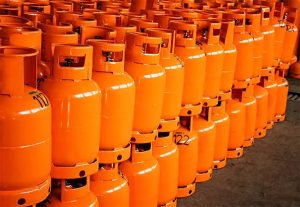The National Petroleum Authority (NPA) has firmly rejected claims of potential cheating at gas filling stations under the new Cylinder Recirculation Model (CRM), attributing the prevention of such issues to the deployment of automated systems at bottling plants.
Speaking on an Accra-based radio station on Tuesday, August 20, 2024, NPA’s Communications Manager, Mohammed Abdul-Kudus, clarified that the use of automated machines in filling LPG cylinders leaves no room for discrepancies.

He further emphasised that for those still uncertain, scales will be made available at filling stations, allowing customers to verify the weight of their cylinders on the spot.
“With these measures in place, there is no reason to doubt the quantity of gas provided,” he added.
The CRM aims to ensure that at least 50 percent of Ghanaians have access to safe, clean, and environmentally friendly LPG by 2030. The policy is also designed to enhance LPG accessibility, improve safety standards in distribution, and boost the adoption of LPG as a primary energy source.
Moreover, the CRM represents a significant policy shift intended to minimise the loss of lives and property, often linked to human error at gas filling stations.
Meanwhile, the NPA, in a statement, further reiterated that the filling of the cylinders under the CRM was automated at the bottling plants and that customers were assured of the right quantity of LPG they would be paying for at the exchange points.
The Communications Director further assured that customers who are still doubtful will have access to scales at the exchange points to weigh their cylinders and verify the correct quantities.
The NPA is mindful of its regulatory mandate to be fair to all players in the country’s petroleum downstream industry and will therefore not pass any comments to antagonize or tarnish the reputation of any player.








